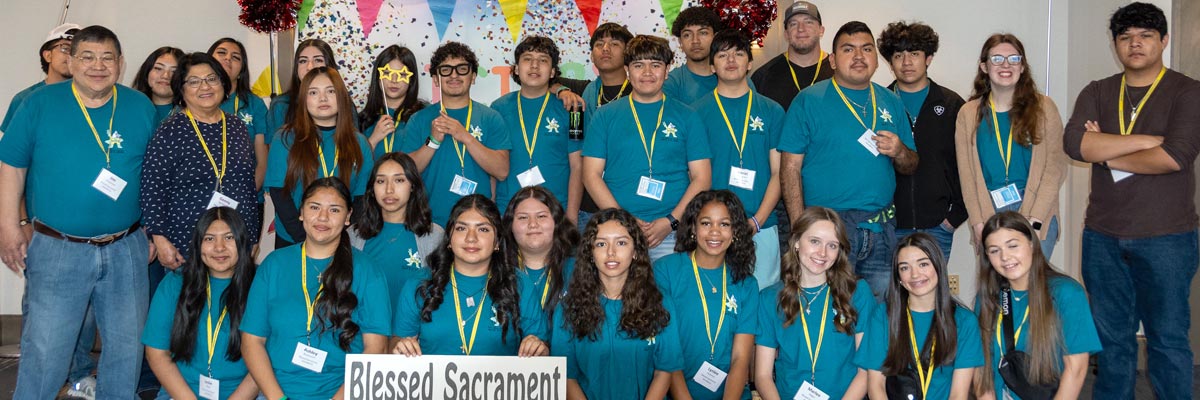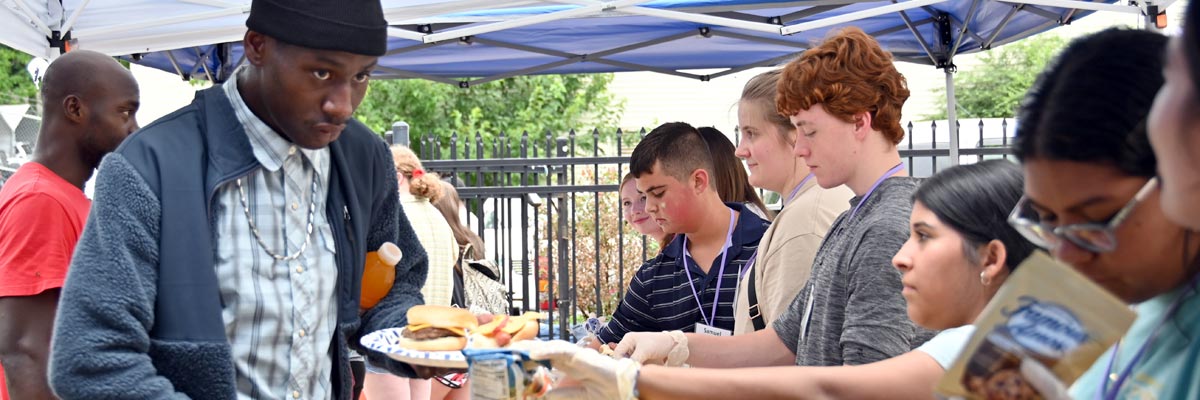Official Website of the
Catholic Diocese of Little Rock
Third Sunday of Advent 2020
Published: December 13, 2020
Bishop Anthony B. Taylor prepared this homily but tested positive for COVID-19 and was in quarantine when it would have been preached on Sunday, Dec. 13, 2020.

Bishop Taylor
One of the nicest things about the Bible is that we often get different versions of the same story as told by different authors. The details will vary but the content is always true.
For instance, in today's Gospel John the Baptist says that he is the precursor to a mighty savior yet to come, just as Mark said last Sunday, and both Gospels quote the same prophecy in Isaiah but the punctuation of the text they use differs from the original Hebrew, and this change of punctuation changes what's in the desert.
In the original Isaiah the way is in the desert: "A voice cries out: In the desert prepare the way of the Lord," while in the Gospels the voice is what's in the desert: "A voice cries out in the desert: Prepare the way of the Lord." And both are true. Both the way and the voice are in the desert.
What is God saying to us today? What about the desert we live in? It's not a desert of sand and stone, but it's a desert just the same: lives built on shifting sand, hearts of stone, people held captive by addiction, ignorance, selfishness and all the other vices, people who long for freedom and healing, people lost in a wasteland of their own making, looking for love in all the wrong places, searching in the darkness for a way out.
In Isaiah the voice is God; in the Gospels the voice is John the Baptist. And both are true. God's message is being voiced by John. And so God speaks new truths through old texts. God tells Isaiah's original audience, who were exiles in Babylon, that he is going to lead them back to Jerusalem through the desert and so it happened, in 521 B.C.
Then in the Gospels God reuses Isaiah's words to speak a new truth to a different audience: that he is sending us a savior whose arrival is being prepared by a voice in the desert (John the Baptist). And of course God's ability to reuse old texts to speak new truths has not ended: God continues to speak to us through the Church and through the Bible the truths we need to hear today.
"A voice cries out in the desert: Prepare the way of the Lord." What is God saying to us today? What about the desert we live in? It's not a desert of sand and stone, but it's a desert just the same: lives built on shifting sand, hearts of stone, people held captive by addiction, ignorance, selfishness and all the other vices, people who long for freedom and healing, people lost in a wasteland of their own making, looking for love in all the wrong places, searching in the darkness for a way out.
What will it take to prepare the way of the Lord today? Calling people to repentance is a good place to start but it takes a lot more than good intentions to set things right. Later John the Baptist will tell his listeners to "produce fruit in keeping with repentance" ... meaning not only asking for forgiveness, but also getting rid of these evils in our own lives and in our society as a whole.
And what about our own personal struggle against sin? We can seek sacramental forgiveness for failings in all these areas in confession, but even there it’s not enough just to say we’re sorry. To make a good, valid confession we must also have “firm purpose of amendment." Like John the Baptist said, we've got to change — completely — and produce fruit in keeping with our repentance.
Repentance is not repentance unless it produces a change of behavior, which is the fruit of repentance. That is what God's voice is crying out in the desert of today: Calling us to change first our own behavior and then work to change the behavior of others, and in this way continue John the Baptist’s work of preparing the way of the Lord as confirmed, Spirit-filled Catholics today, and all the remaining days of our life.









